New Zealand nuclear stance ‘non-negotiable’, says Christopher Luxon
Anthony Albanese and NZ PM Christopher Luxon have pledged increased defence and security ties, particularly given the Indo-Pacific’s ‘complex and growing challenges’.
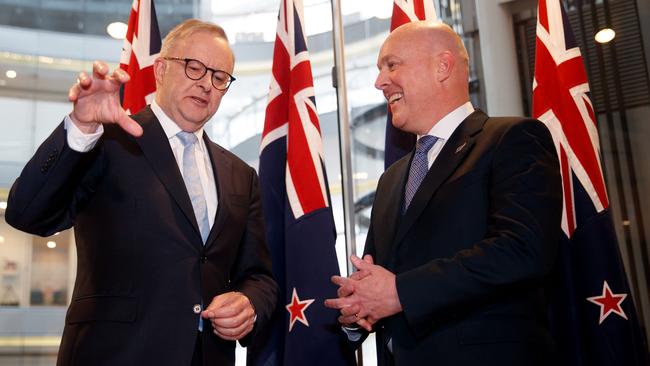
Prime Minister Anthony Albanese and his recently elected trans-Tasman counterpart Christopher Luxon have pledged increased defence and security co-operation between their two nations, particularly given the Indo-Pacific’s “complex and growing challenges”.
However, Mr Albanese appeared to confirm that Australia would not send a warship to join a new Red Sea task force – instead saying the US, who made the request, were happy for diplomatic support – as Mr Luxon said New Zealand would do “its share of heavy lifting” as it explored joining AUKUS’s Pillar Two, but reaffirmed the country’s “non-negotiable” nuclear-free position.
It comes as the two leaders met in Sydney on Wednesday during Mr Luxon’s first official overseas trip since his October election win.
“The depth of our relationship is unique, and it spans security, regional work, economic integration, and obviously our people and strong links,” Mr Luxon said.
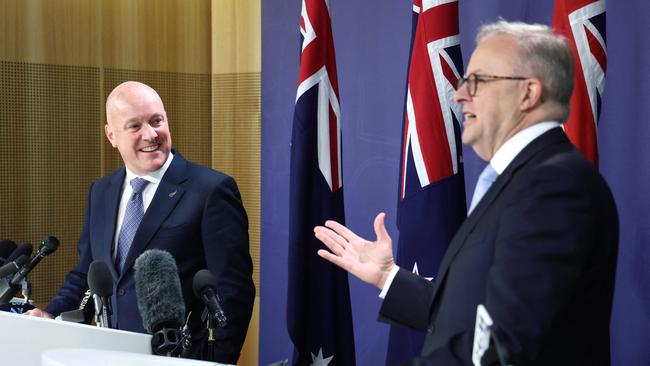
“We know we’re facing a more challenging and complex world, and the security and defence relationships we have with Australia are very fundamental to New Zealand… (which) is committed to doing our share of heavy lifting in the alliance.
“We want to work together to support a stable and resilient region.”
The pair’s Wednesday press conference was dominated by two things: the escalating situation in the Red Sea and AUKUS, particularly New Zealand potentially joining Pillar Two of the defence pact.
Mr Luxon, however, made clear his country’s stance on nuclear, ruling out hosting any AUKUS and Australian nuclear submarines.
“AUKUS is a very important element in ensuring stability and peace in the region,” Mr Luxon said.
“A number of countries are increasing their military capabilities – and it’s an uncontested region for sure – but we’ve always had our nuclear-free position and that’s non-negotiable.
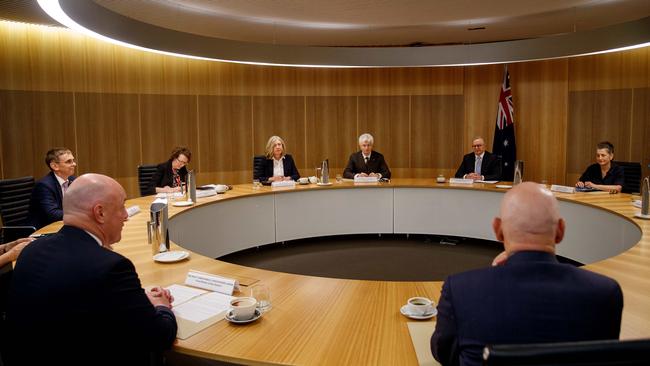
“(But) we are interested in exploring Pillar Two (of the AUKUS pact)... new technologies and opportunities, (and what) that may mean for New Zealand to participate.”
Pillar Two is the “advanced technology” component of the pact, which would see armed forces share advanced technology and increase interoperability.
Mr Albanese lauded AUKUS and said both countries would expedite a formal meeting between the two nations’ defence ministers in the new year.
“I see opportunities for greater co-operation between (our) militaries, particularly interoperability, which has practical and efficiency effects,” he said.
“We are also very pleased that Congress passed the AUKUS legislation, many said that couldn’t be achieved.
“I think that there are areas of cooperation that are challenges to the globe, like artificial intelligence.
“How do we make sure that we keep ahead of those issues? I think the more that we cooperate, the better the benefit for both of our countries.”
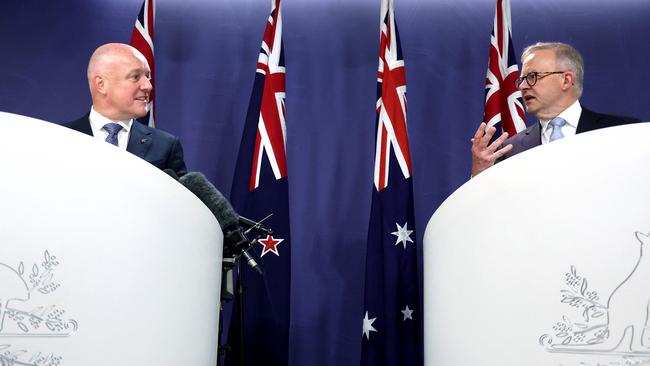
Mr Albanese also reiterated a distinction between “nuclear-propulsion” and nuclear warheads.
“What we’re envisioning here is nuclear propulsion (submarines), not nuclear-armed, and that’s an important distinction,” he said.
The Australian revealed previously how the Albanese government had been asked by the US to send a warship to aid the escalation of conflict in the Red Sea – where Iran-backed Houthi rebels have attacked shipping lanes in the sea, a vital trade route – but was poised to decline.
It’s understood that request was modified after initial talks in which Australia expressed a reluctance to take part. Australia was subsequently excluded from the 10-member task force.
Mr Albanese again ruled out sending a warship to the US’s Operation Prosperity Guardian, saying instead his focus was on “our region”, and that diplomatic and limited personnel deployment was welcomed by the States. Chief of the Defence Force Angus Campbell was part of a Red Sea task force meeting overnight, hosted by US Defence Secretary Lloyd Austin.
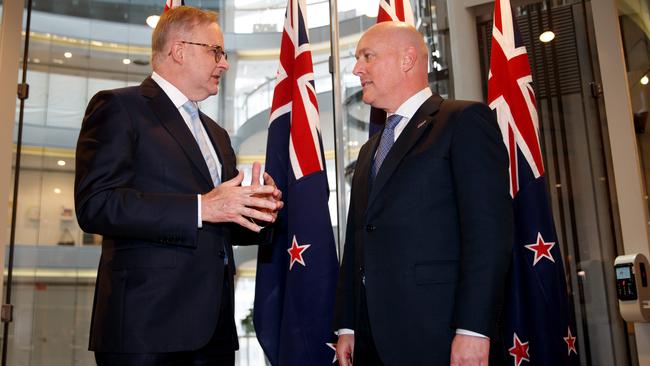
“We participated last night as one of 39 countries in the combined maritime force, we are making a contribution,” Mr Albanese said, again condemning the Houthi rebels.
“The US is keen for Australian diplomatic and public support, we’ve provided that along with New Zealand.
“We know that the US understands that the best way for Australia to support is through diplomatic support.
“Resources have been prioritised in our own region – we’ve played an important role in the freedom of navigation in the South China Sea, and our operations with the Philippines.”
Both leaders made clear their long-standing working and personal relationship that predated both their administrations – the pair worked together when Mr Luxon was previously Air New Zealand CEO and Mr Albanese a Transport Minister.
Mr Luxon personally thanked Mr Albanese’s administration for its “intervention and work” in clearing a path for New Zealand citizens to gain Australian citizenship, while also commending the aid sent during Cyclone Gabrielle, promising in turn to “reciprocate” as north Queensland was impacted by severe flooding.
Mr Albanese said the extent of the two nations’ co-operation was also illustrated in a joint statement with Canadian Prime Minister Justin Trudeau in the three nations’ support for a “sustainable ceasefire” between Israel and Hamas.
Mr Luxon acknowledged the economic relationship between the pair, which has $32bn in annual trade.
“One-third of Australian businesses export to New Zealand and more than half of our foreign direct investment comes from this side of the Tasman,” he said, calling New Zealanders “the best migrants”.


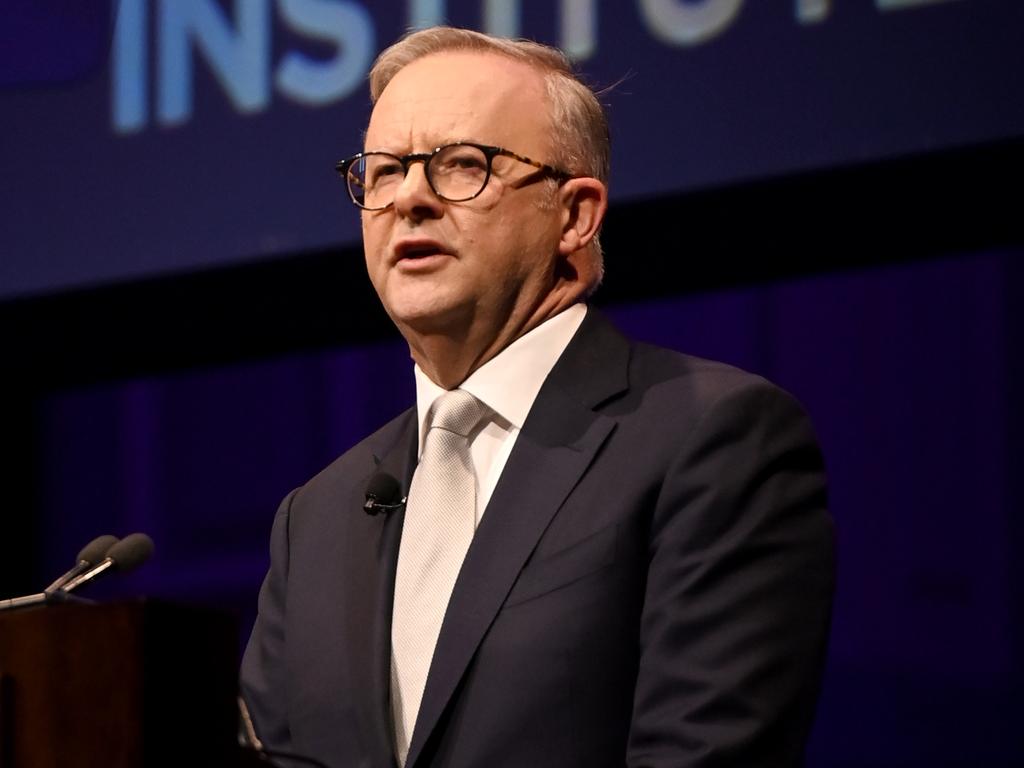
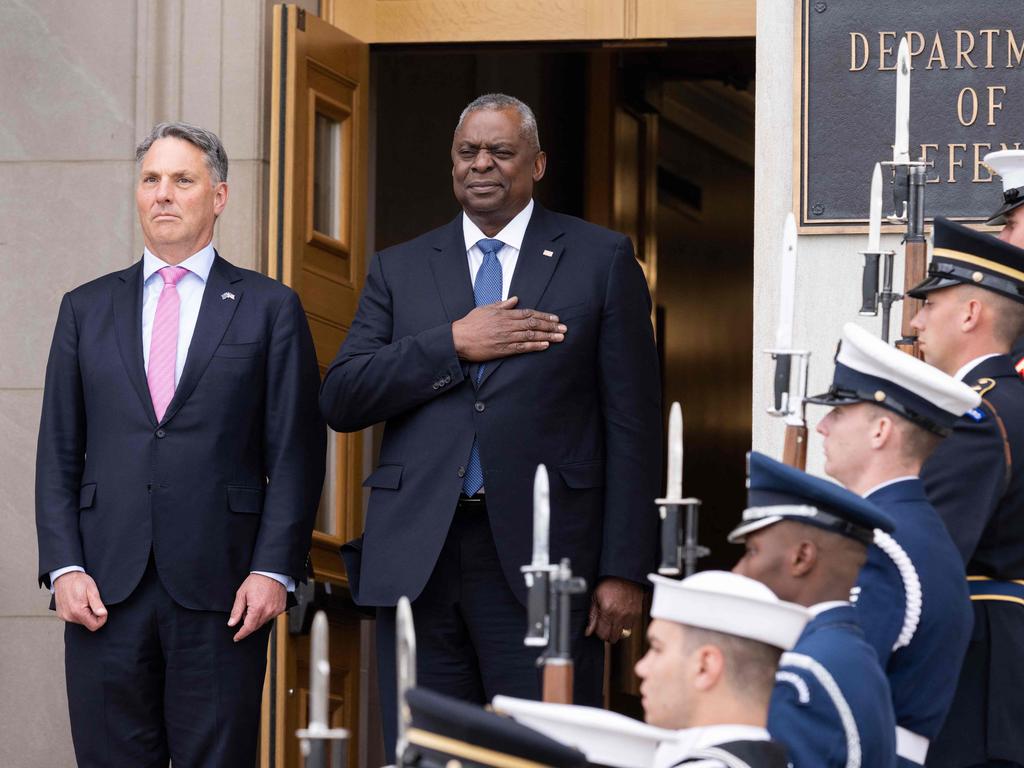
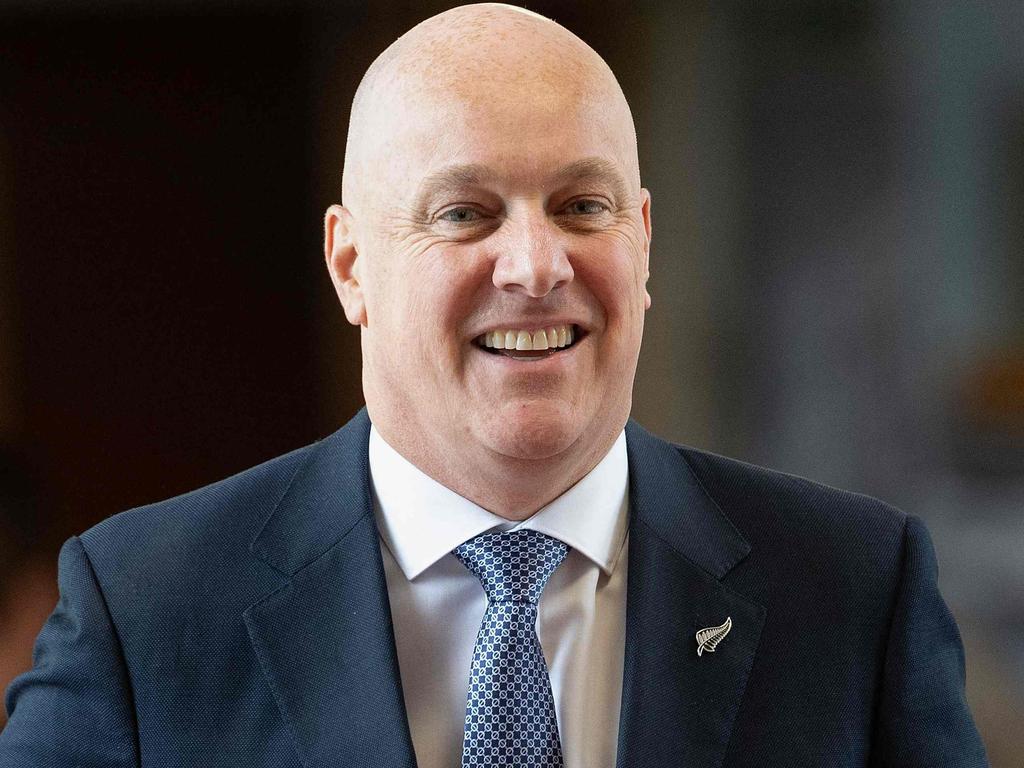



To join the conversation, please log in. Don't have an account? Register
Join the conversation, you are commenting as Logout